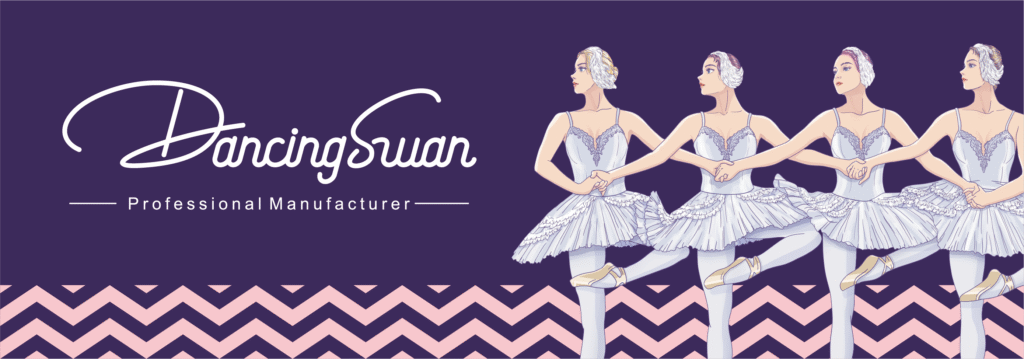Eyelash extensions have taken the beauty world by storm, offering instant volume and length without daily mascara. However, many wonder if eyelash extensions ruin eyelashes over time. While they can enhance your look, improper application and poor aftercare can lead to thinning, breakage, and even infections. Understanding the risks helps you enjoy extensions without compromising your natural lashes.
The key concern is whether eyelash extensions ruin eyelashes permanently or temporarily. Experts agree that damage usually occurs from incorrect techniques, heavy extensions, or harsh adhesives. If applied carefully by a professional and maintained properly, extensions should not destroy your natural lashes. However, neglect or frequent use without breaks can weaken them, leading to sparse growth or traction alopecia.
This guide explores how eyelash extensions impact natural lashes, common risks, and ways to prevent damage. Whether you’re new to extensions or a long-time wearer, these insights will help you maintain healthy lashes while enjoying a glamorous look.
How Eyelash Extensions Ruin Your Natural Lashes: The Hidden Risks
Eyelash extensions have become a popular beauty trend, promising voluminous, fluttery lashes without the need for mascara or falsies. While they can enhance your look, many people don’t realize the potential damage they can cause to natural lashes. From premature lash loss to infections, the risks are real—and often overlooked.
1. Weakens and Thins Natural Lashes
The glue used in eyelash extensions can weaken the natural lash structure over time. Each lash has a growth cycle, and extensions can interfere with this process by weighing down the hair follicle. Repeated applications may lead to thinning, breakage, or even permanent damage if lashes fall out before completing their natural growth phase.
2. Traction Alopecia
Traction alopecia occurs when constant pulling or tension on hair follicles causes permanent damage. Heavier extensions, improper application, or overly frequent fills can strain the natural lashes, leading to sparse or absent lashes over time. Once follicles are damaged, regrowth may be slower or, in severe cases, stop altogether.
3. Allergic Reactions and Eye Infections
The adhesive used in lash extensions often contains cyanoacrylate, a chemical that can trigger allergic reactions in sensitive individuals. Redness, itching, and swelling are common. Additionally, poor hygiene during application or improper aftercare can introduce bacteria, increasing the risk of infections like blepharitis or conjunctivitis.
4. Natural Lash Shedding Disruption
Natural lashes follow a specific growth, rest, and shedding cycle. Extensions can interrupt this process by forcing lashes to stay attached longer than intended, leading to clumps of shed lashes stuck together. Over time, this disrupts the healthy renewal of lashes and may result in patchy, uneven growth.
5. Dependency on Extensions
Regular use of extensions can create a cycle of dependency. After prolonged wear, natural lashes may appear sparse and less dense, making users feel they need extensions to achieve a full look. This can lead to continuous applications, further damaging the natural lashes in the long run.
How to Minimize Damage
If you love eyelash extensions, you don’t have to quit entirely—just take precautions:
- Choose a certified, experienced technician who uses high-quality products.
- Opt for lighter, shorter extensions to reduce strain on natural lashes.
- Take breaks between applications to let your lashes recover.
- Follow proper aftercare, including gentle cleansing and avoiding oil-based products near the eyes.
- Consider lash serums to support natural lash health between sessions.
Understanding these risks helps you make informed decisions about eyelash extensions. While they can enhance beauty temporarily, prioritizing the long-term health of your natural lashes is key to maintaining your best look sustainably.
The Truth About Whether Eyelash Extensions Ruin Your Lashes
Eyelash extensions have become a popular beauty trend, offering longer, fuller lashes without the daily hassle of mascara. However, many people worry that extensions might damage their natural lashes. The truth? When applied and cared for correctly, eyelash extensions shouldn’t ruin your natural lashes—but poor application or maintenance can lead to problems. Here’s what you need to know.
How Eyelash Extensions Work
Eyelash extensions are semi-permanent fibers, usually made from synthetic silk, mink, or another lightweight material, that are glued individually to your natural lashes. A skilled technician isolates one natural lash at a time and attaches a single extension, ensuring even weight distribution and minimal stress on your lashes.
The key to preventing damage lies in the technique. Extensions should never be glued to multiple lashes or the skin, as this can cause breakage and even hinder natural lash growth.
Potential Risks of Eyelash Extensions
While eyelash extensions themselves aren’t inherently harmful, certain practices increase the risk of damage:
- Poor Application: Heavy extensions or improper bonding can weigh down natural lashes, leading to premature shedding.
- Low-Quality Adhesive: Cheap or harsh glues may irritate the eyes or weaken lashes.
- Overuse: Constantly wearing extensions without breaks can strain lashes, disrupting their natural growth cycle.
- Rough Handling: Rubbing, pulling, or using oil-based products near extensions can cause them to fall out prematurely, taking natural lashes with them.
How to Protect Your Natural Lashes
The good news is that with proper care, you can enjoy eyelash extensions without sacrificing the health of your natural lashes:
- Choose a Reputable Technician: Always go to a certified professional with good reviews who uses high-quality products.
- Opt for the Right Length & Thickness: Overly long or thick extensions strain lashes—stick to a style that complements your natural lash strength.
- Follow Aftercare Instructions: Avoid water, steam, and oil-based products for at least 24 hours after application. Clean lashes gently with a lash-safe cleanser.
- Take Breaks Between Fills: Allow your lashes time to rest between sessions to maintain their health.
What If Your Lashes Already Feel Damaged?
If your natural lashes feel thinner or weaker after extensions, don’t panic. Lashes have a natural growth cycle, and shedding is normal. To help them recover, take a break from extensions, use a lash serum (containing peptides or biotin), and be gentle when removing eye makeup. In most cases, lashes will grow back on their own with time.
The Bottom Line
Eyelash extensions don’t have to ruin your natural lashes—when done right, they can be a safe and stunning enhancement. The key is choosing a skilled technician, using high-quality products, and following a solid aftercare routine. With these precautions, you can enjoy flawless lashes without compromising their health.
What You Should Know Before Getting Eyelash Extensions to Avoid Damage
Eyelash extensions can enhance your look by adding length, volume, and curl to your natural lashes. However, improper application or poor aftercare can lead to damage, including lash loss, irritation, or infections. Before booking your appointment, here’s what you need to know to keep your lashes healthy and beautiful.
1. Choose a Qualified and Experienced Technician
Not all lash technicians are created equal. A poorly trained technician may use low-quality adhesives or apply lashes incorrectly, leading to premature fallout or damage to your natural lashes. Always research salons and read reviews, and don’t hesitate to ask about the technician’s certification and experience. A reputable professional will use safe, high-quality products and follow hygienic practices.
2. Understand the Different Types of Extensions
Eyelash extensions come in various materials, lengths, and styles. Common types include:
- Synthetic: Bold and dramatic, but can feel heavy on natural lashes.
- Silk: Lightweight and semi-natural in appearance.
- Mink: Ultra-light and natural-looking, though some may have ethical concerns about sourcing.
Discuss your preferences with your technician to find the best option for your natural lash strength and desired look.
3. Avoid Extensions If You Have Lash or Eye Conditions
If you have sensitive eyes, allergies, or conditions like blepharitis (eyelid inflammation) or natural lash loss, extensions may worsen the problem. The adhesive can cause irritation, and the added weight may strain weak lashes. Consult a dermatologist or ophthalmologist if you’re unsure whether extensions are safe for you.
4. Be Prepared for Maintenance and Aftercare
Eyelash extensions require upkeep. Follow these tips to prolong their lifespan and protect your natural lashes:
- Avoid water and steam for the first 24–48 hours after application to let the adhesive fully bond.
- Skip oil-based products near your eyes, as they break down the adhesive.
- Be gentle when cleansing—use a lash-friendly cleanser and avoid rubbing.
- Schedule regular fills every 2–3 weeks to maintain fullness as lashes naturally shed.
5. Recognize When to Take a Break
Continuous use of lash extensions without breaks can weaken your natural lashes over time. If you notice excessive thinning, breakage, or irritation, consider taking a few weeks off to let your lashes recover. A lash serum can help strengthen them in the meantime.
Eyelash extensions can be a game-changer for your beauty routine when applied and cared for correctly. By choosing the right technician, understanding the process, and following proper aftercare, you can enjoy lush, fluttery lashes without compromising their health.
Tips to Prevent Eyelash Extensions from Ruining Your Natural Lashes
Eyelash extensions can give your eyes a stunning, voluminous look without the need for mascara or falsies. However, if not applied or maintained properly, they can weaken or damage your natural lashes. Here are some essential tips to keep your lashes healthy while enjoying the beauty of extensions.
1. Choose a Professional Technician
A skilled and certified lash technician knows how to apply extensions correctly, ensuring they don’t pull or stress your natural lashes. Avoid DIY kits or inexperienced stylists, as improper application can lead to lash breakage or premature shedding.
2. Opt for Lightweight Extensions
Heavy or overly thick extensions can strain your natural lashes, causing them to fall out prematurely. Discuss options with your technician—choose lightweight materials like synthetic silk or mink, and avoid excessive thickness that your lashes can’t support.
3. Avoid Overloading Lashes
Less is often more when it comes to lash extensions. Applying too many extensions to a single natural lash can weaken the hair follicle. A good rule of thumb is one extension per natural lash to maintain balance and health.
4. Stick to Proper Aftercare
Taking care of your extensions is crucial for preserving your natural lashes. Avoid oil-based makeup removers, excessive rubbing, and waterproof mascara, as these can break down the adhesive and weaken lashes. Use a gentle, lash-safe cleanser instead.
5. Don’t Pull or Tug at Extensions
Picking or pulling at your extensions can take natural lashes with them, leading to gaps or sparse growth. If an extension feels loose, let it fall out naturally or visit your technician for safe removal.
6. Take Regular Breaks
Giving your lashes a break between full sets allows them to recover and regrow naturally. Consider taking a few weeks off every few months to maintain lash health.
7. Use a Lash Serum
Strengthen your natural lashes by applying a conditioning serum with ingredients like peptides or biotin. This helps nourish the hair follicles and promotes healthy growth, even with extensions.
8. Schedule Regular Touch-Ups
Instead of waiting until most extensions have fallen out, maintain your lashes with touch-ups every 2–3 weeks. This prevents sparse lashes from straining to support the remaining extensions.
By following these tips, you can enjoy the glamour of lash extensions while keeping your natural lashes strong and healthy. Always prioritize proper application and aftercare to avoid long-term damage.

